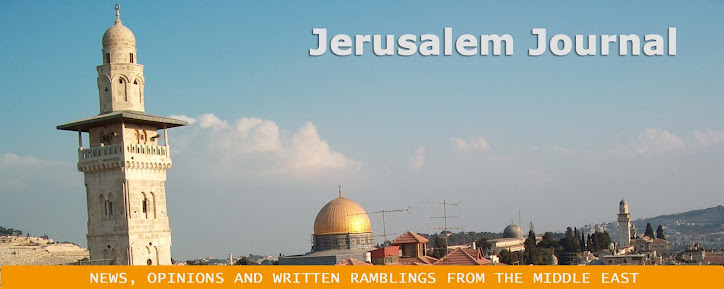May 14, 2009
From an amphitheater built specifically for this mass, Pope Benedict XVI exhorted Christians and Muslims in Jesus’ hometown of Nazareth to repair damaged relations between them and to “find the way to a peaceful coexistence.”
The Galilean city, with a 30 percent Christian population, has been marred by tensions in recent years between Christians and the Muslim majority. Muslims tried to build an unauthorized mosque that would have towered over the Basilica of the Annunciation, but the Israeli government put a stop to the construction in 2002 and offered alternative sites for the Islamic house of prayer.
Tensions persist, however. Prior to the visit, the Northern Islamic Movement called on Muslim leaders to boycott interfaith meetings with the Pope. Benedict offended Muslims worldwide when he quoted in September 2006 a medieval description of the religion as “evil and inhuman” and ”spread by sword.” Benedict made it clear that the text did not reflect his own views, but Muslims violently protested in cities around the world and even attacked churches in Palestinian areas.
Earlier this month, an imam strung up a banner across Nazareth’s main square warning the Pope: “Those who harm Allah and His Messenger – Allah has cursed them in this world and in the hereafter, and has prepared for them a humiliating punishment.”
Despite these threats though, Muslims, Druze, Jews and Christians participated in the interfaith dialogue in Nazareth and during a song about peace sung in three languages, the Pope and the representatives of different religions on the platform clasped hands and stood together - a far cry from the interfaith meeting in Jerusalem on Monday that ended abruptly after an Islamic judge used the platform to criticize Israel in unscheduled speech.
The Pontiff also met privately with Israeli Prime Minister Benjamin Netanyahu this afternoon to discuss the peace process and agreements on land and taxes between the Vatican and Israeli government.
Some 40,000 worshippers attended the mass on the hill surrounding the 7,000-seat amphitheater, the biggest in Israel. The theater was built on Mount Precipice, where a mob tried to throw Jesus off a cliff according to the New Testament.
“This is first-class exposure and will encourage tourism in the future. We are expecting a wave of tourism following this,” said Mayor Ramiz Jaraisy told reporters prior to the mass. “We hope for a specific call from the Pope for people to come and make prilrimage to the Holy Land.”
At the mass, Archbishop of Galilee for the Greek Melkite Church Elias Chacour welcomed the pope and pled for his”moral and spiritual support” to stem the exodus of Christians from the Holy Land. The flight of Christians “fills me with pain” and that the future is not encouraging.
But while exhorting local Christians to stay in the Holy Land and calling on several occasions for a Palestinian state, the Pontiff failed to address Muslim persecution of Christians. He blamed the economy, limited movement and Israeli policies as the reasons Christians are leaving the Holy Land.
Tomorrow, the Pontiff will visit the Greek Orthodox Patriarchate, the Holy Sepulchre, where Jesus is believed to have been crucified and buried, and Saint James Armenian Church before he returns to the Vatican.


